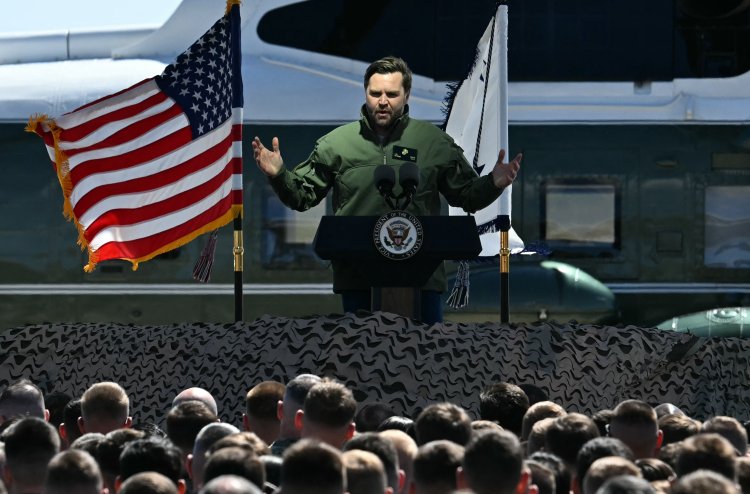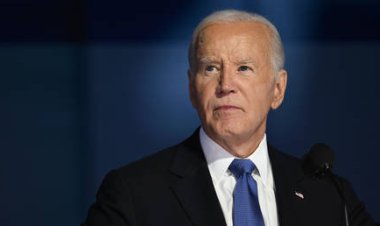Vance travels to Greenland amid rising anxieties over annexation
The trip's tumultuous launch coincides with the president's mounting enthusiasm for the island.

Vice President JD Vance, accompanied by his wife Usha and a U.S. delegation that includes national security adviser Mike Waltz, is scheduled to visit the Arctic island on Friday. They plan to tour a U.S. Space Force base to “check out what’s going on with the security there,” Vance reported in a social media video on Tuesday.
This trip, whose rollout has been somewhat chaotic, occurs amidst Trump’s ramped-up rhetoric towards Greenland. He stated, “we’ll go as far as we have to go” to bring Greenland under U.S. control, despite the opposition of its residents. The situation underscores the complex political dynamics surrounding Trump’s expansionist views and highlights how seriously Danish and Greenlandic officials are regarding his intentions.
“The Greenlanders are feeling quite uneasy, and there are concerns about what this might lead to,” remarked Minna Ålander, a fellow on transatlantic defense and security at the Center for European Policy Analysis.
A senior White House official told PMG that Vance would stress how Danish leaders, who provide essential financial and military support to Greenland, “have spent decades mistreating the Greenlandic people, treating them like second-class citizens and allowing infrastructure on the island to fall into disrepair.”
Initially, the visit was presented as a demonstration of cultural goodwill and a Vance family vacation. The first lady's office announced on Sunday that she would join her young son on a trip to visit historical sites, learn about Greenlandic heritage, and attend the Avannaata Qimussersu, Greenland’s national dogsled race.
“I’m also coming to celebrate the long history of respect and cooperation between our nations and to express hope that our relationship will only grow stronger in the coming years,” she stated in a video on social media.
However, the announcement received immediate backlash. Danish Prime Minister Mette Frederiksen remarked that it was “clearly not a visit that is about what Greenland needs or wants,” while the Greenlandic government noted on Facebook that it “has not extended any invitations for any visits, neither private nor official.” Moreover, the organization behind the dogsled race, Kalaallit Nunaanni Qimussertartut Kattuffiat, stated on Sunday that it “did not invite them.”
“Certainly, a visit like this would be welcome if it didn’t come alongside veiled threats of annexation, but it is, and so it’s seen as provocative,” commented Rachel Rizzo, a senior fellow at the Atlantic Council's Europe Center.
On Tuesday, the vice president announced he would be accompanying Usha to Greenland, and instead of attending the dogsled race, they would visit the Pituffik Space Base, located far from major Greenlandic settlements.
Sources familiar with Vance’s reasoning, who spoke on condition of anonymity, indicated that Vance's change in plans was a last-minute decision motivated by his desire to join his wife, as he felt “super jealous” of Donald Trump Jr.’s prior visit to the island in January. Consequently, his team adjusted the itinerary to accommodate him.
However, Vance’s participation in the trip serves more significant objectives than a simple family outing. Influential in shaping the administration's foreign policy, the vice president is solidifying his standing as a prominent Euro-skeptic in a White House filled with them while aligning himself with a project of personal significance to Trump.
Despite the shift in itinerary, both Denmark and Greenland welcomed the change from a primary focus on a culturally significant event to a visit to a U.S. military base. Danish Foreign Minister Lars Løkke Rasmussen described the amendment as “a positive development,” reflecting an understanding by the Americans of the Greenlandic resistance to their overtures. Frederiksen framed it as a victory for the Greenlandic people, stating on Facebook: “You have not been cowed. You have stood up for who you are – and you have shown what you stand for. That has my deepest respect.”
Even as the delegation adopted a less contentious schedule, Trump continued to amplify his rhetoric. “We’ll go as far as we have to go,” he told reporters Wednesday in the Oval Office. “We need Greenland and the world needs us to have Greenland, including Denmark.”
“We need it,” he asserted that same day in a radio interview. “We have to have it.”
Compounding European concerns over Trump’s expansionist ambitions, Russian President Vladimir Putin made a statement on Thursday during the International Arctic Forum, suggesting that “it would be a great mistake to believe” Trump’s objective to annex Greenland is merely “some eccentric talk.”
Putin’s remarks, which drew parallels to discussions from the Civil War era about the value of Greenland, seemed aimed at rehabbing bilateral relations with the U.S. during Trump’s presidency. By equating potential U.S. interests in Greenland with his invasion of Ukraine, Putin appeared to have dual objectives: justifying his own actions and exacerbating the existing rift between the U.S. and European countries wary of American expansionism in a territory historically linked to Denmark.
The U.S. strategy regarding Greenland now appears to involve diminishing Denmark’s influence.
“As the Vice President has said, previous U.S. leaders have neglected Arctic security, while Greenland’s Danish rulers have neglected their security obligations to the island,” Vance’s press secretary, Taylor Van Kirk, stated in a PMG release. “The security of Greenland is critical in ensuring the security of the rest of the world, and the Vice President looks forward to learning more about the island.”
With a population of approximately 60,000, Greenland has maintained its own government and parliament since 1979 but relies on Denmark for economic and military support. Recently, an opposition party advocating for a gradual move toward independence won a parliamentary election. A poll indicated that only 6 percent of Greenlanders support becoming part of the U.S.
“They don't want to exchange one colonial power for another.”
Sanya Singh for TROIB News












